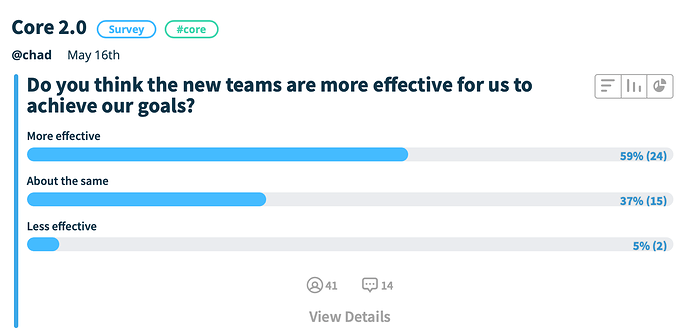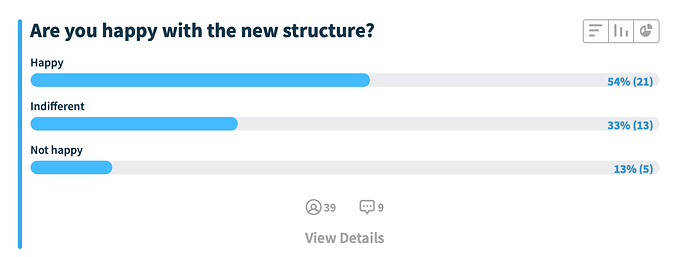Remember when Core teams were formed?
#core-wallet, #core-chat, #core-dapps, etc. weren’t always part of the org
In Q2, launching beta was a major product focus, but that wasn’t well reflected in our work.
At the time, there were over 20 swarms working on a wide range of projects—few of which focused on shipping a stable Mainnet version of our core product.
As we PMs* care about shipping more than anything, we suggested the organization form into product areas, with the view of narrowing our focus up until the beta launch. Core 2.0 was born.
The idea was that we would review, and maybe dissolve, this team structure once beta launched. Instead, #core-wallet, #core-chat, #core-dapps, #infra, Status Mobile and Status Desktop have been humming along ever since.
Not all projects fall under these umbrellas (see documentation or #279-snt-voting-dapp). And many people who belong to one of these teams also have other work.
*To be fair, it wasn’t just PMs driving this, but it was definitely a PM mentality.
Let’s revisit teams
Teams may impact OKRs, so do we keep them as they are?
In Prague, we’ll collaborate on OKRs in person. One suggestion is to set OKRs at the team level, rather than for all of Core. This would give each team clear and meaningful direction, as well as more influence over their own priorities.
Before we get to Prague, it would be great to hear opinions on the team structure. We know that some contributors don’t like the notion of having fixed teams at all, while others are happy to build relationships with a consistent group and focus.
What do you think?
Are you happy with the Core teams?
Do you have any feedback or suggestions?
Are you content with your team? Your work overall?

